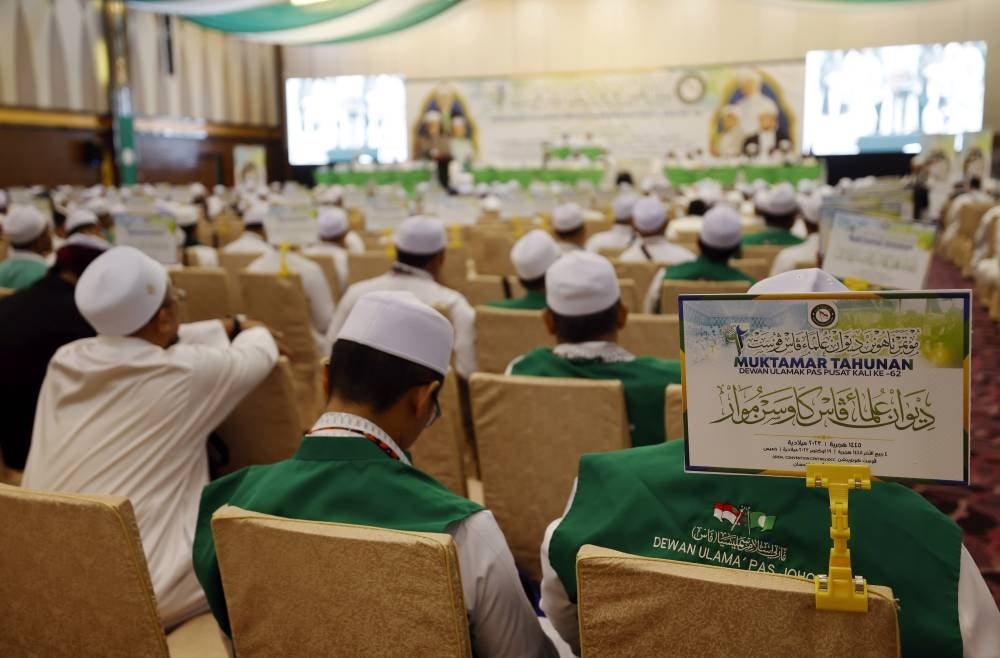Legal challenges to Syariah law in Malaysia

SHAH ALAM - A Pas delegate has sounded the alarm on how Muslims in Malaysia are facing strategic litigation done by certain groups that are out to undermine the sanctity of the country’s Syariah law.
In backing his claim, Wan Rohimi Wan Daud from the Pas Syariah law division cited the ongoing bid by lawyer Nik Elin Zurina Nik Abdul Rashid to declare several syariah criminal offences under the Kelantan Syariah Criminal Code (I) Enactment 2019 unconstitutional.
“This is not a trivial matter.
“If they win the case, next Monday, our state legislative assemblies will no longer have the power to amend the Syariah Enactment to outlaw, for example, bestiality, gambling and intoxication.
“We won’t have the power to protect the ummah,” he said during his speech at the 69th Pas Muktamar at the Ideal Convention Centre (IDCC), today.
In driving home his point on the Islamic laws being undermined in the country, Wan Rohimi who is also a lawyer also recounted the infamous story of a five-year-old girl known as Maryam who was born to a Dutch and Scottish couple but was brought up as a Muslim by a Malaysian in Terengganu.
“As her father was behind bars and the mother couldn’t take her, Maryam was raised in the Islamic faith by Aminah, a legal battle emerged when Maryam's biological father sought to reclaim her custody," he said.
After initial legal victories, the tragic tale ended with Maryam's return to the Netherlands, ultimately resulting in the loss of her faith and a battle with leukemia in the United States.
The case sought to challenge the validity of state enactments related to the conversion to Islam without unilateral approval.
The case harked back to a decades-old dispute involving the interpretation of religious rights and the authority of state legislatures in Malaysia.
"Firstly, there was no preparation to safeguard the belief in Maryam perhaps because she was not protected and was married to the land in Singapore, not in Kemaman.
“There was a bloody conflict in the court proceedings on Dec 12, 1950, which continued on Dec 13, 1950, resulting in the loss of 18 lives, 177 critically injured, and 1,000 arrested and also some was hanged,” he said.
He added that the conflict, which unfolded in the 1950s, was provoked by the circulation of images showing Maryam who was later known as Natrah kneeling before the Virgin Mary in pro-colonial newspapers.
“This led to a major riot and revealed a lack of preparedness within the Islamic community to address such a crisis.
"In this era, we were threatened by a group with a litigation strategy, even though they proudly proclaimed on June 10, 1980, in Parliament, that Parliament is the one to decide on the matter under Section 121," he said.
Commenting further, he said over the years, it became apparent that a silent, well-funded and relentless litigation strategy were at play, culminating in the landmark case of Indira Gandhi against the Islamic Religious Council and the state of Perak in 2018.
"This case confirmed the right of a Muslim husband who married in the Hindu religion to convert his children to follow the religion of the father.
"The effort of the judges gathered to interpret the word 'parent' as meaning both the mother and father. This interpretation cost Islam a significant opportunity to enforce the law," he said.











